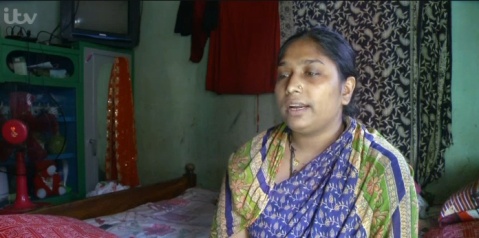People are still dying for fashion: What will it take to stamp out supplier malpractice?
ITV’s latest documentary ‘Exposure: Fashion Factories Undercover’ revealed that 10 months on from the Rana Plaza factory collapse in Dhaka, garment factory workers are still enduring terrible working conditions and putting their lives on the line in order that Western consumers can continue to enjoy cheap clothing. As the narrator asks: everyone loves a bargain, but at what cost?
Britain imported £1.48 billion worth of clothing from Bangladesh last year. Price may be king for high street retailers, but most now acknowledge that this must come second to worker safety. Retailers may look for the cheapest possible costs from suppliers, but they also increasingly demand to see evidence of compliance from the garment factories. Steps are being taken to improve standards, but what will it take to see effectual changes made to this enormous, sprawling industry, when factories seem to be so adept at hiding malpractice from retail auditors?
Hidden cameras used in the documentary revealed workers suffering daily violence, verbal abuse, constant intense pressure to meet deadlines in one Dhaka sweatshop. Managers were filmed verbally and physically attacking girls as young as 14.
The documentary included interviews with two Rana Plaza survivors. 23-year-old Roxana Begum had been a machinist on the 7th floor of Rana Plaza, and became one of hundreds of people trapped alive in the rubble. She reported becoming so thirsty, trapped in the hot rubble, that she began licking people’s blood. Roxana later had her leg amputated.
More disturbingly, the documentary revealed that days before the Rana Plaza factory collapse, which killed more than 1,100 people and injured 2,500, large cracks had appeared in the pillars of the building, and officials had ordered the building to be evacuated. The owner of the factory went on TV to assure everyone it was safe, and managers reportedly forced worried employees into the building on the day of the collapse.
Western companies had performed checks on the Rana Plaza factory prior to the collapse but they hadn’t identified the dangers. How can retailers keep their supply chains ethical, with so little transparency when it comes to supplier selection?
Leading retailers are using supply chain management software to give them better visibility into supply chain issues. Supply chain management tools can store up-to-date audit data on all your suppliers, and flag up potential compliance issues. ediTRACK’s Lighthouse software has an Ethical Trade module that does just this, and also stores the ETI code and variations on it to make it easier for retailers to provide their suppliers with a defined ethical compliance standard.
Many western retailers including M&S and New Look have signed the ACCORD safety agreement, as a mark of how seriously they take ethical compliance in their supply chains. Both M&S and New Look use a supply chain management software that helps them to maintain visibility over suppliers’ compliance.
So what will it take to stamp out supplier malpractice in the Bangladesh garment industry? It is a complex issue and there are no quick fixes, but retailers can ensure they employ resource that is focused on ethical trading, and setting guidelines and targets will go a long way toward improving working conditions in their end-to-end supply chains. In addition, using more sophisticated software to share up-to-date information about factories will help retailers to monitor their suppliers and react quickly to new information. There will always be a demand for cheap clothing and fast production, but once the world’s largest retailers are committed to ensuring worker safety in their supply chains, factories will have little choice but to comply, or else risk missing out on the largest orders.
2 responses to “People are still dying for fashion: What will it take to stamp out supplier malpractice?”
Trackbacks / Pingbacks
- - June 14, 2014


this is good Information, Hope we will read many other good things from you in future also. Regards